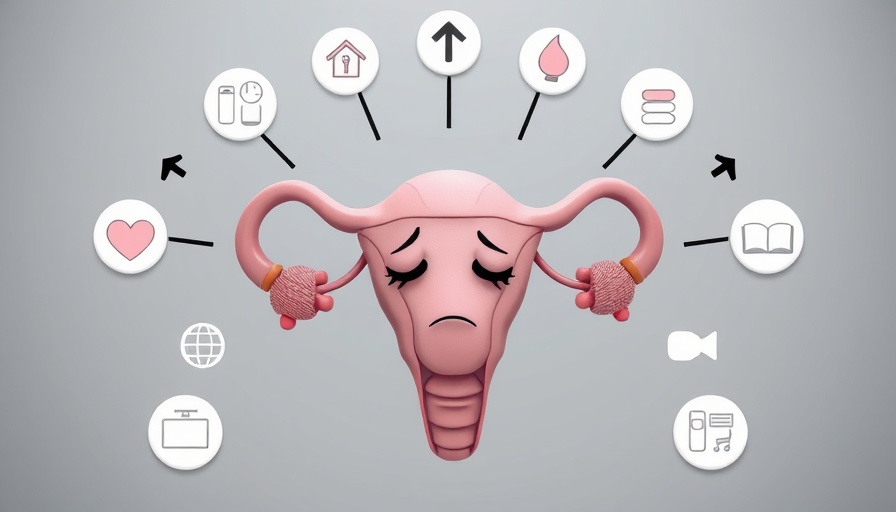
Understanding the Menstrual Cycle: A Deeper Dive
The menstrual cycle is a complex orchestra of hormonal shifts and physiological changes that play a crucial role in women's health. This natural process, often shrouded in stigma and misinformation, goes beyond mere monthly bleeding. By understanding the intricate dynamics of menstruation, individuals can gain insights into their overall health and refine their approach to well-being through alternative health practices.
In 'what really happens during your period understanding the menstrual cycle explained', the discussion dives into the complexities of menstrual health, exploring key insights that sparked deeper analysis on our end.
Historical Context of Menstruation: More Than Just a Monthly Occurrence
Throughout history, menstruation has been viewed through various cultural lenses—some revering it as a sign of vitality, while others impose silence and shame. In our contemporary understanding, it's critical to recognize that menstruation is not simply a bodily function, but also a window into the female endocrine system's health. Research illustrates historical misinterpretations of menstrual cycles, often denying women the knowledge that could empower them. Recognizing menstruation's legacy can foster a modern narrative where women embrace their cycles rather than hide from them.
Social Connections: Why Menstrual Wellness Matters
Promoting menstrual health is tantamount to advancing female empowerment. Acknowledging and normalizing conversations around menstruation can break taboos and enable a supportive community. For many women, dismissing or trivializing their menstrual experiences can lead to greater reliance on pharmaceuticals, often disregarding holistic options that offer relief and deeper understanding. When society promotes open dialogue, women are encouraged to seek natural alternative treatments like herbal remedies or lifestyle changes that align with their unique cycles.
Future Insights: How Menstrual Awareness Will Shape Wellness Trends
As we move forward, the intersection of modern technology and menstrual health could revolutionize personal care. With innovative wearable technology and apps on the rise, tracking menstrual cycles has become more accessible than ever. These tools allow for a personalized approach to health and wellness, helping to identify patterns that can inform nutritional choices, exercise regimens, and lifestyle adjustments. Such insights empower women to reclaim control over their health and challenge the traditional healthcare model that has often neglected their needs.
Unique Benefits: What Menstrual Awareness Offers
Understanding one's menstrual cycle can reveal the interconnectedness of various health aspects. Women who track their cycles may discover fluctuations in mood, energy levels, and reproductive health, which can inform decisions related to diet, exercise, and stress management. Additionally, this awareness can arm women with knowledge to challenge inappropriate medical interventions or dismissive healthcare attitudes. Acknowledging these connections not only empowers individuals but also dismantles the outdated narratives surrounding female health.
Decisions You Can Make With This Knowledge
With a stronger grasp on menstrual health, individuals can better navigate their personal wellness journey. Choices can range from dietary adjustments that alleviate PMS symptoms to selecting natural remedies over pharmaceutical options for pain relief. In a world where women’s experiences are often sidelined, making informed choices based on one's menstrual cycle can foster agency, ultimately paving the way for a more tailored and self-directed health approach.
Call to Action: Embrace Menstrual Awareness
As we delve into understanding the menstrual cycle, it becomes clear that awareness is key to empowerment. By embracing this knowledge, women not only improve their own health but contribute to a broader cultural shift that reclaims menstruation from the shadows. It's time to advocate for menstrual wellness, engage in community conversations, and explore alternative approaches that honor natural processes.
 Add Row
Add Row  Add
Add 


Write A Comment